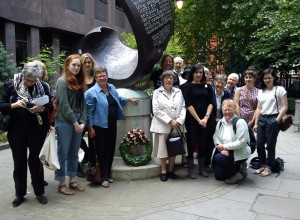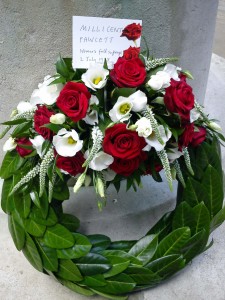Notes from Defining the Victorian Nation: Class, Race, Gender and the Reform Act of 1867 by Catherine Hall, Keith McClelland and Jane Rendall (2000)
From the Introduction, pp. 1-70
Quoting Margaret Mylne, writing in the Westminster Review 1941: “In my younger days it was considered rude to talk politics to the ladies. To introduce [the topic’ at a dinner party was a hint for us to retire and leave the gentlemen to such conversation and their bottle. But the excitement that prevailed all over the country at the prospect of the Reform Bill of 1832 broke down these distinctions, while the new, and it seemed to us, splendid idea of a ‘hustings at the Cross of Edinburgh’ drove its inhabitants, both male and female, half frantic with delight.” (p. 29)
From “The citizenship of women and the Reform Act of 1867” (Rendall, pp. 119-178)
p. 121 – “The reform crisis of 1830-2 prompted some consideration of women’s claim to the franchise. The Tory landowner from Halifax, Anne Lister, regretted in her diary that women of property were unable to exercise the vote, though they might, as she herself did, strive to influence the electoral process. In August 1832 a petition to the House of Commons from Mary Smith of Stanmore asked for the vote for ‘every unmarried woman having that pecuniary qualification whereby the other sex is entitled to the said franchise’. Matthew Davenport Hill, a radical Unitarian, endorsed women’s suffrage in his election campaign in 1832 in Hull. BUt the Reform Act for the first time defined the voter as ‘male'”
“In October 1865 the death of Lord Palmerston signalled the possibility of a renewal of interest in parliamentary reform, as Lord Russell, who was strongly committed to moderate reform, formed a new ministry. In November 1865 the Kensington Ladies Debating Society put on their agenda for discussion: Is the extension of the parliamentary suffrage to women desirable, and if so under what conditions?”
“p. 158 “The Education ACt of 1870 for England and Wales provided that women who were municipal and parish voters could also vote in school board elections. Any woman, married or not, could stand as a candidate… as Elizabeth Garrett and Emily Davies in London and Lydia Becker in Manchester did successfully in 1870, setting important precedents for the holding of public office. In Wales, Rose Mary Crawshay, wife of the Merthyr ironmaster, Robert Thompson Crawshay, and an active supporter of the women’s suffrage campaign, was elected a member of the Merthyr School Board in Match 1871…. In England and Wales, single or widowed women ratepayers were qualified to vote for and to become Poor Law Guardians, though none stood for office until 1875, when Martha Merrington was elected … in Kensington… But a high property qualification meant only the affluent were able to serve.”
read more



 About
About